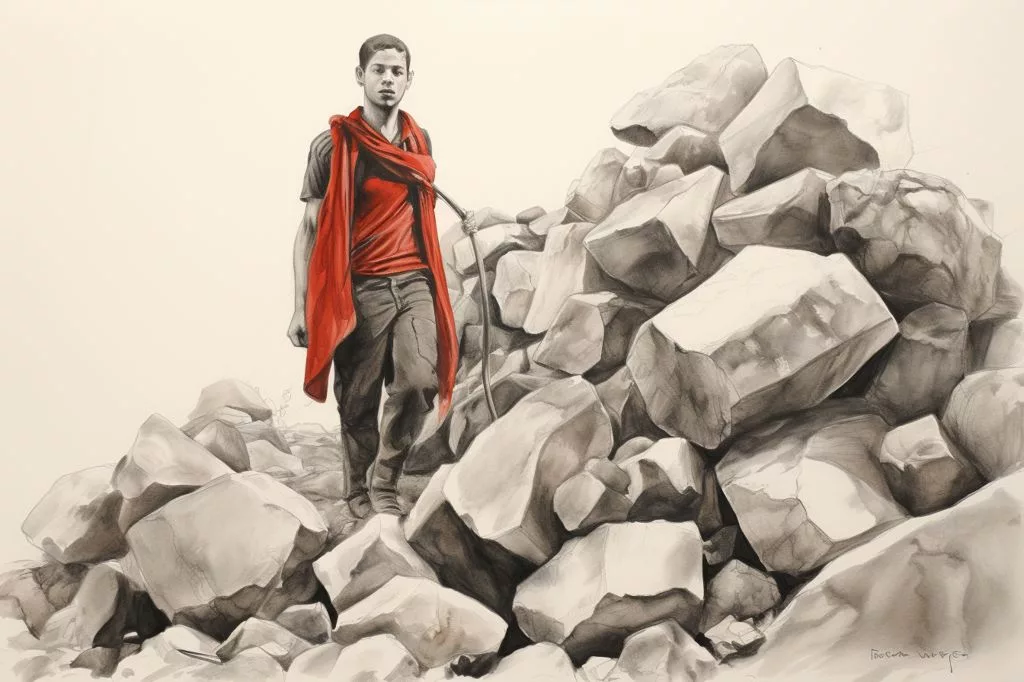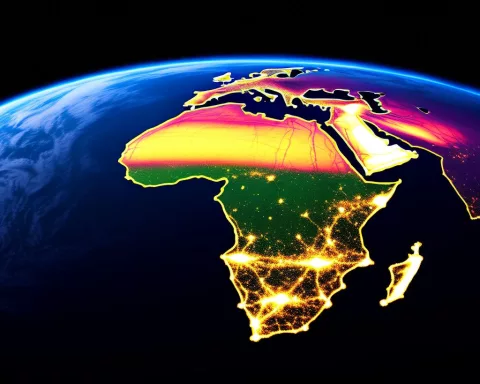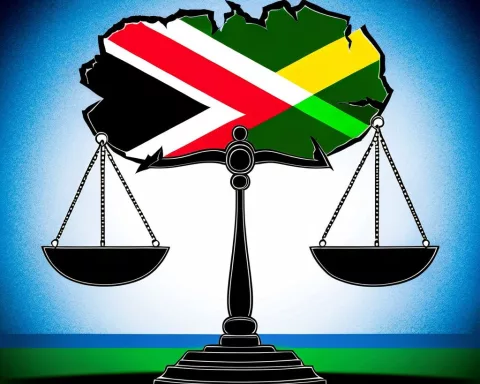Julius Malema, the leader of the Economic Freedom Fighters (EFF), is a vocal supporter of the Palestinian cause, calling for a boycott of Israeli products and the closure of the Israeli embassy. He has even promised to provide weapons to Palestine if his party wins the 2024 general elections. Malema draws comparisons between the ongoing conflict in Palestine and South Africa’s historic fight against apartheid, emphasizing the importance of international solidarity in pursuing human rights. Malema’s controversial position on the conflict highlights the significance he ascribes to international support in the pursuit of human rights.
What is Julius Malema’s stance on the Israeli-Palestinian conflict?
Julius Malema, leader of the Economic Freedom Fighters (EFF), is a vocal supporter of the Palestinian cause. He has called for a boycott of Israeli products and the closure of the Israeli embassy, and even declared that if the EFF wins the 2024 general elections, they will provide weapons to Palestine. Malema draws comparisons between the ongoing conflict in Palestine and South Africa’s historic fight against apartheid, emphasizing the importance of international solidarity in the pursuit of human rights.
Julius Malema Expresses Solidarity with Palestine
Julius Malema, the leader of the Economic Freedom Fighters (EFF), has consistently displayed strong support for the Palestinian cause. Recently, Malema declared that if the EFF wins the 2024 general elections, they will provide weapons to Palestine. At a protest outside the Israeli embassy in Pretoria, he passionately addressed the crowd, promising to support Hamas in their struggle for freedom. The EFF continues to advocate for a widespread boycott of Israeli products and the closure of the Israeli embassy.
Earlier this month, an attack by Hamas on Israel led to the deaths of hundreds of Israeli citizens, including two South Africans. In retaliation, Israeli Prime Minister Benjamin Netanyahu ordered a relentless bombing campaign on the Palestinian enclave, including the destruction of a hospital. Essential resources such as electricity, food, water, and fuel have been severely limited, causing immense suffering for the Palestinian people.
In his speech, Malema drew comparisons between the ongoing conflict in Palestine and South Africa’s historic fight against apartheid. He argued that the quest for freedom and justice in Palestine goes beyond religion and ethnicity, centering on human rights. Malema referenced the use of weapons by revered South African activists – including Oliver Tambo, Chris Hani, Nelson Mandela, and Winnie Madikizela-Mandela – in their pursuit of liberation, suggesting that Hamas’s actions are not dissimilar.
The Importance of International Support
Malema underscored the significance of international support in South Africa’s battle against apartheid. Funding for weapons, ammunition, and food was provided by the “international progressive world.” Groups like the African National Congress (ANC) and its military wing, Umkhonto we Sizwe (MK), were initially labeled as terrorists. Malema highlighted that Hamas is now facing similar challenges, with the group branded as terrorists just like those who fought for South Africa’s liberation.
The EFF leader’s commitment to supply Hamas with weapons if his party wins the election next year is a bold and controversial declaration. In doing so, he underscores the importance of international solidarity in the fight for freedom and justice in Palestine, as it was for South Africa during apartheid. By comparing the two struggles, Malema aims to emphasize the shared humanity and moral obligation to fight for human rights, while acknowledging the intricate and often violent nature of liberation movements.
The ongoing Israeli-Palestinian conflict has attracted worldwide attention, with many activists and political figures expressing their support for either side. As the leader of the EFF, Malema’s public and unwavering support for Palestine carries significant weight. By advocating for a mass boycott of Israeli products and the closure of the Israeli embassy, Malema and the EFF are using their platform to amplify the Palestinian cause and call for international solidarity.
Historical Context and the Future of the Conflict
The comparison between apartheid-era South Africa and the present situation in Palestine is not new. However, Malema’s choice to emphasize this connection in his speech underlines the importance of historical context when examining the Israeli-Palestinian conflict. By drawing on the anti-apartheid struggle in South Africa, Malema seeks to demonstrate that the fight for freedom and justice in Palestine is part of a broader global struggle for human rights.
Malema’s controversial promise to arm Hamas has certainly captured attention, but the lasting impact of this pledge on the ongoing conflict in Palestine or even South African politics remains uncertain. Regardless, Malema’s unwavering support for the Palestinian cause is a testament to the significance he ascribes to international solidarity in the pursuit of human rights, a sentiment that resonates with the struggles and triumphs of South Africa’s own history.
In conclusion, Julius Malema’s position on the Israeli-Palestinian conflict is unapologetically pro-Palestine. The EFF leader’s call for a boycott of Israeli products, the closure of the Israeli embassy, and his promise to arm Hamas if his party secures victory in the election all reflect his fervent commitment to the Palestinian cause. By drawing parallels between the struggles against apartheid in South Africa and the ongoing conflict in Palestine, Malema underscores the importance of international solidarity in the fight for justice and human rights.
1. What is Julius Malema’s stance on the Israeli-Palestinian conflict?
Julius Malema is a vocal supporter of the Palestinian cause and has called for a boycott of Israeli products and the closure of the Israeli embassy. He has even promised to provide weapons to Palestine if his party wins the 2024 general elections.
2. What comparisons does Julius Malema draw between the Israeli-Palestinian conflict and South Africa’s fight against apartheid?
Julius Malema draws comparisons between the ongoing conflict in Palestine and South Africa’s historic fight against apartheid. He emphasizes the importance of international solidarity in pursuing human rights and underscores the significance of historical context in examining the Israeli-Palestinian conflict.
3. What has the EFF advocated for regarding the Israeli-Palestinian conflict?
The Economic Freedom Fighters (EFF) advocates for a widespread boycott of Israeli products and the closure of the Israeli embassy.
4. How has Julius Malema expressed solidarity with Palestine?
Julius Malema has consistently displayed strong support for the Palestinian cause, declaring that if the EFF wins the 2024 general elections, they will provide weapons to Palestine. He has also passionately addressed crowds at protests outside the Israeli embassy in Pretoria.
5. What significance does Julius Malema ascribe to international support in pursuing human rights?
Julius Malema underscores the importance of international support in the fight for justice and human rights, drawing on the funding and resources provided by the “international progressive world” during South Africa’s struggle against apartheid.
6. What is the historical context behind Julius Malema’s comparisons of the Israeli-Palestinian conflict to apartheid-era South Africa?
Julius Malema’s choice to emphasize the connection between apartheid-era South Africa and the present situation in Palestine underscores the importance of historical context when examining the Israeli-Palestinian conflict. He seeks to demonstrate that the fight for freedom and justice in Palestine is part of a broader global struggle for human rights.
7. What impact might Julius Malema’s promise to arm Hamas have on the Israeli-Palestinian conflict or South African politics?
The lasting impact of Julius Malema’s promise to arm Hamas remains uncertain, but his unwavering support for the Palestinian cause highlights the significance he ascribes to international solidarity in pursuing human rights.
8. Why is Julius Malema’s position on the Israeli-Palestinian conflict significant?
As the leader of the EFF, Julius Malema’s public and unwavering support for Palestine carries significant weight and amplifies the Palestinian cause. His advocacy for a mass boycott of Israeli products and the closure of the Israeli embassy underscores the importance of international solidarity in pursuing human rights.












